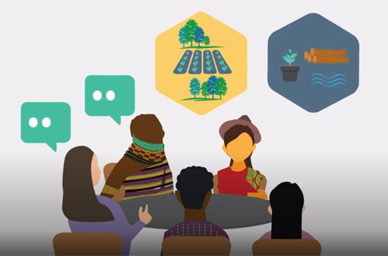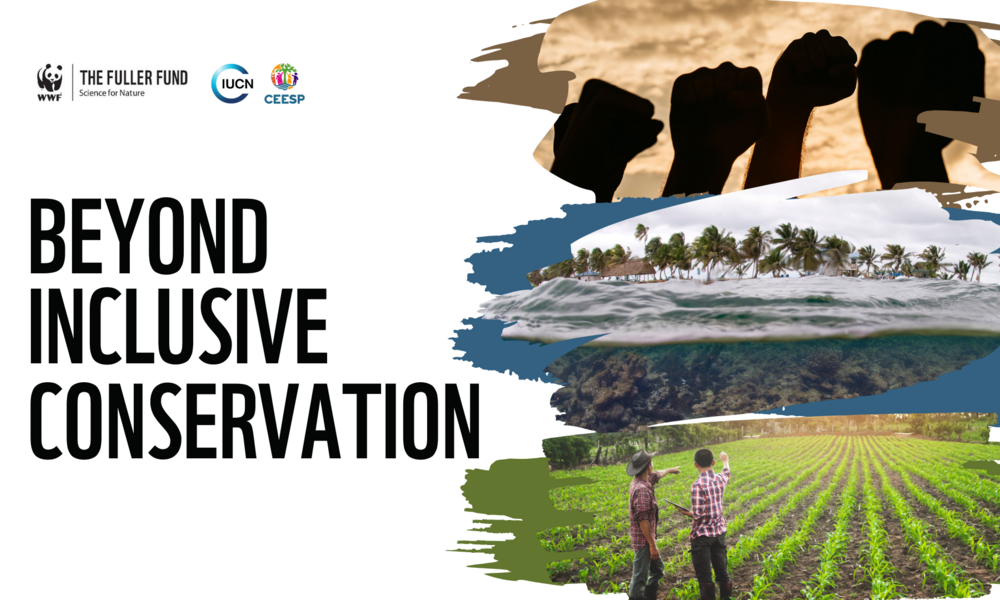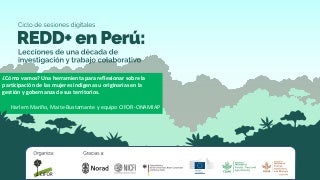Multi-stakeholder platforms (MSPs) are purposely organized interactive processes that bring together a range of sholdertakeholders to participate in dialogue, decision making and/or implementation, with the aim to address a common problem or achieve a common goal.
The aim of these platforms is to facilitate participatory agreements with outcomes that are more equitable and effective than those reached through ‘business as usual’ approaches. However, if done without sensitivity or care for the political and social context, the platforms can also trivialize participation, limit opportunities for meaningful debate, fail to tackle power differences and lead to outcomes that reinforce inequity.
CIFOR-ICRAF researchers have been examining and engaging stakeholders to expand the transformative potential of MSPs in landscape governance since 2017 through literature reviews and a comparative study of 13 platforms organized at the subnational level in Brazil, Ethiopia, Indonesia and Peru.
The lessons learned through the case studies and engagement with diverse actors led to the development of open-access tools to co-design, monitor and reflect on effective MSPs. They are intended for use by governments, international institutions, indigenous and local community organizations, environmental groups and other NGOs.
The tools are unique because:
- They were developed with a wide range of actors.
- They were designed to be used by platform participants and organizers themselves, not to be applied by external evaluators.
- They go beyond a simple assessment of indicators, inviting participants to discuss and reflect on their experiences
While they do not challenge power relations and inequalities on their own, the tools support people at the forefront of the transition from top-down decision making to more equitably managed landscapes.
Testimonies
The management committees [the official MSFs for supporting the management of Natural Protected areas in Peru] are the platform for validating several processes, but we need to see if this space is representative, legitimate, and includes the most vulnerable groups; hence we worked on the development of this tool (…) which brings together the diversity and singularity of each territory.Marco Arenas (SERNANP)
For indigenous women, our territory is our life. It is there where we find our food and medicines, our knowledge, practices and ancestral traditions, and our own cultural identity. Hence the effective and equitable participation of women in decision-making is essential (…). We have signed an interinstitutional agreement between ONAMIAP and CIFOR to develop a tool to monitor and promote our participation as indigenous women in territorial governance.Melania Canales (ONAMIAP)
The guideline provided by CIFOR is really useful for us. We tend to do business as usual without realizing whether our practices are effective or ineffective. Through the monitoring process, we are invited to look back and reflect on the forum. Also, monitoring can be done every 5 or 10 years to see if the province’s political and policy dynamics influence the forum. (…) The tool provided through the workshop would be really helpful. Dina Riska (DDPI)
Tools and tips to design and monitor meaningful, inclusive platforms for transformation
Tools to reflect on the process, progress and priorities of MSPs
‘How are we doing?’ video tutorials

CIFOR’s toolkit to support inclusion in multi-stakeholder forums
This video provides a short introduction to four tools CIFOR and partners developed collaboratively to support the inclusion of marginalized groups in multi-stakeholder forums and processes. It introduces How are we going? in three adaptations: for multi-stakeholder forums, for the management committees of Peru’s protected areas and for indigenous women in territorial governance; as well as Getting it Right, a guide for forum organizers to support inclusion of Indigenous Peoples and women.

A short guide to implementing How are we doing?
This video briefly outline the steps required for the implementation of How are we doing? A tool to reflect on the process, progress and priorities of your multi-stakeholder forum.











































